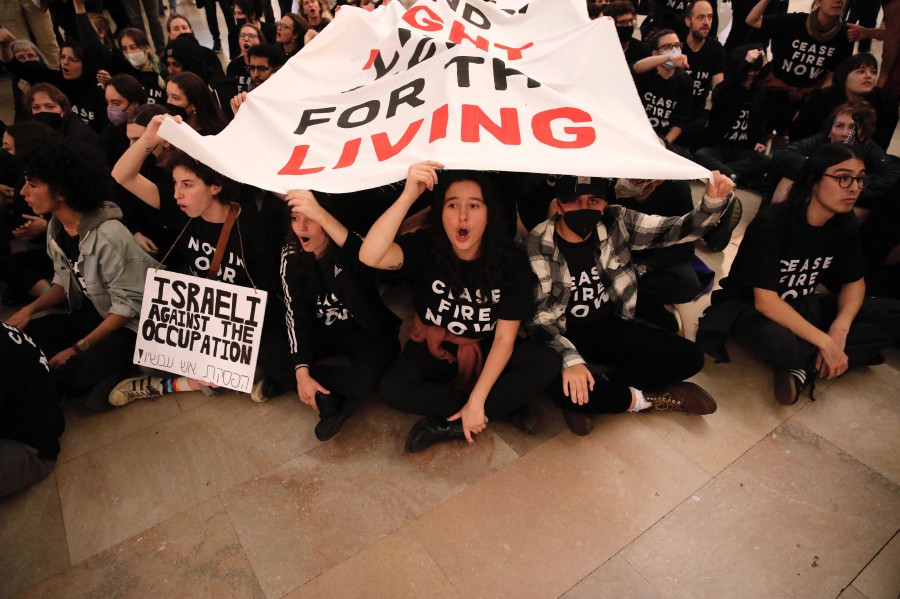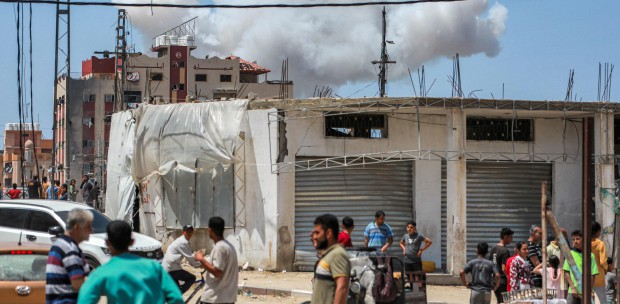KUALA LUMPUR: The bombardment of Gaza by Israel since the conflict started on Oct 7 has again laid bare the inability and hypocrisy of major powers and global bodies to stop the Israel's atrocities in the Gaza Strip and the West Bank.
Albeit growing calls from civil societies and world leaders demanding the regime to stop the destruction and killing of innocent civilians, including children and women, the situation in Gaza has become worse.
Professor Dr Mohd Mizan Mohammad Aslam from the National Defence University Malaysia's Department of International Relations, Security and Law said Israel must be held accountable for the killings of the Palestinians in Gaza.
"However, the inaction of world bodies, including the United Nations (UN) and UN Security Council (UNSC), to take action against Israel has only fuelled its heinous crimes," he said.
ALSO READ: 'UNSC resolution unlikely' https://www.nst.com.my/news/nation/2023/10/971650/us-opposition-ceasefir...
The superpowers' indifference is evident from the start. On Wednesday, the UNSC failed to adopt two resolutions addressing the humanitarian crisis as China and Russia vetoed a US draft resolution, while a second Russian-backed resolution failed to secure sufficient votes in favour.
This followed failures for unity at the Council last week. The Russian-led resolution which called for an "immediate humanitarian ceasefire" on Oct 17 was voted down, and the following Wednesday, the US vetoed a Brazilian-led resolution that urged "humanitarian pauses" for aid to be delivered to Gaza.
Nations concerned over the plight of the Palestinians, including Malaysia and the Arab world, pursued the matter at the United Nations General Assembly's Emergency Special Session on Thursday, where a Jordanian-led resolution calling for truce and humanitarian aid was adopted on Friday with 120 votes in favour.
This is not the first time Palestine faced a humanitarian crisis due to Israel's atrocities.
Mizan said the root cause of the conflict needs to be revisited in order to find a solution.
This is notably the illegal occupation of the Gaza Strip and West Bank, the confiscation of Palestinian land by Israel, the systemic intrusions, persecution and the killing of Palestinians in Gaza, which must be stopped.
"The latest conflict is the result of the oppression and atrocities of the Zionist regime towards Palestine and its people that has spanned over seven decades. If these issues are not resolved, such conflicts will happen again."
He said action must be taken to pressure Israel to comply with the pre-1967 border agreement as outlined by the UN resolutions with al-Quds (Jerusalem) as capital to the Palestinian state.
However, he was sceptical that Israel with a strong backing from some of the most powerful countries in the West will be compelled to do so.
"When Israel keeps violating these agreements, do you think their intention is to make peace with the Palestinians? Definitely not.
"Peace is not what Israel is trying to attain, they just do what they want as no action will be taken against them," he said.
Mizan said the conflict would destabilise the region.
"With the US' involvement, and Russia dragged in and the Hezbollah – all this will create a very messy situation. It will not be good for the region and the world," he said.
He suggested for the UN to establish a demilitarised zone to maintain peace and order in the area.
"The UN must play its role by establishing a demilitarised zone, especially in East Jerusalem. We need the UN to come in to build a buffer zone and to invite peacekeeping missions to oversee the situation."
More than 7,000 Palestinians in Gaza and the West Bank, and 70 per cent of their children, women and elderly have been killed while 18,000 others have been injured or maimed by the Israeli airstrikes since Oct 7.
The enclave, with a population of 2.3 million people and often referred to as an open prison, has suffered from total blockade, with food, water, medicine and fuel running out, while aid convoys allowed into Gaza have delivered only a fraction of what is needed. -- BERNAMA





